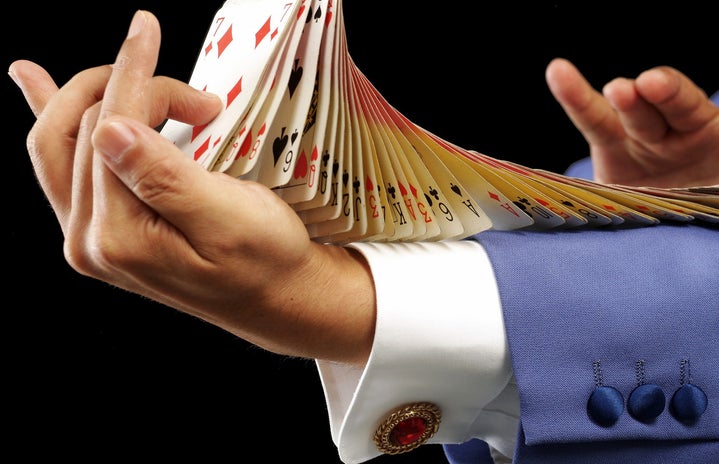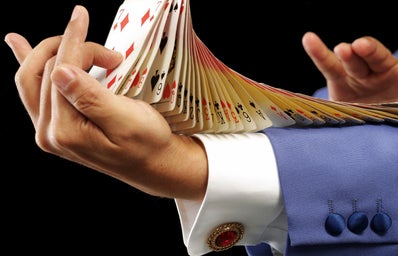I love playing poker. This assertion may raise concern to some that I, at nineteen, have unraveled into some insatiable gambler who will inevitably watch her hard-earned cash vanish into some mystical sinkhole of overzealous bets. But do not be fooled; poker is about much more than the allure of any measly game subsidizing this season’s hottest handbag. Poker is about strategy, tenacity, and passion, and I think that more women should play.
Prior to last summer, I had only ever been mildly intrigued by the game. My poker immersion primarily consisted of the occasional family squabble where I would cling onto my cheap plastic chips with intense fear and passivity. Mild intrigue evolved into casual appreciation when I attended a first date that doubled as a backyard poker game. Through attending subsequent games with my newfound summer fling, I discovered that poker effectively aligned with my obsession with interdisciplinary strategy.
Come this school year, I officially joined the poker club where I attended my first strategy session and freeroll tournament. I placed 10th overall. From then on, my interest in poker escalated quickly into an unshakeable fascination.
This brings me to my pitch on the value in poker. Firstly, let me clarify the misconception that success in poker is determined exclusively by unpredictable spots of flimsy cosmic luck. It is true that a terrible starting hand may prevail despite bad odds. However, reducing poker to a game of luck is a drastic oversimplification of the game’s requirements. Long term success in poker relies on skill and analysis.
Specifically, poker is about odds and statistics, psychology, and clever communication. You must gauge the value of your hand, and project your likelihood of success, based on the immovable statistics of certain cards being in play, the actions of your opponents, and your own actions. You can improve your likelihood of success by knowing how much to bet, when to bet, and what your bet communicates about the strength of your hand. Aptly enacting and observing these communications improve your ability to shift the hand’s narrative in your favor.
Additionally, poker teaches the importance (and inevitability) of risk taking, along with the fruitlessness of prolonged passivity. For example, if you are particularly short stacked (only capable of covering a few more big blinds) you have to know when to go “all in,” even with non-ideal cards. If you do not risk it all eventually, you will be soon eliminated from the game.
Furthermore, poker brings you face to face with the epic highs and lows of stubbornness. For example, letting only aggravation or unbridled curiosity persuade you to call a large bet you know you are projected to lose, and then actually losing, stings (like a lot). As a result, poker teaches intentionality, patience, and ego management. Poker teaches you to cope with grace and forces meaningful reassessment of missteps. Ultimately, the above factors entangle and slither through one another in such a way that compounds into broadly applicable life skills.
The problem is that poker is male dominated. In my first tournament, only three out of 40 players were women, which rounds out to a cool 7.5% percent of competitors. This stat is actually a win for the ladies, considering that only 5% of professional poker players are women. Admittedly, I do feel a slight pressure to prove that women are good at poker. Sometimes, I feel like a designated spokesperson for my gender.
This is where we have a collective action problem; more women taking up well-deserved space in poker, systematically reduces their risk of feeling nervous or ogled at with intrigue and suspicion. Consequently, this encourages more women to play, which in turn reinforces the benefits, and attracts more women.
Poker may feel intimately connected to an intimidating arena, but it is an opportunity for women to to feel empowered, and to access the countless benefits and legitimate fun of this unique and compelling space. In conclusion, poker might take guts, but you have them.


